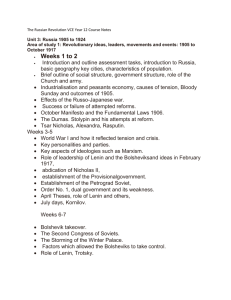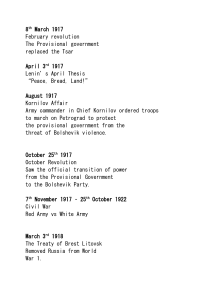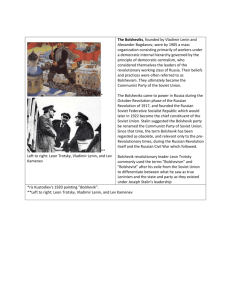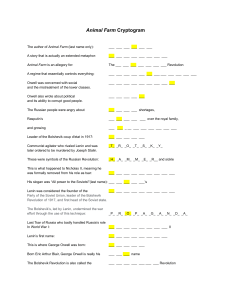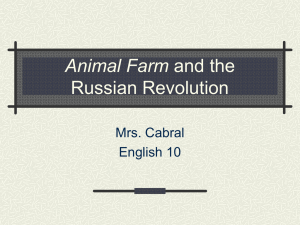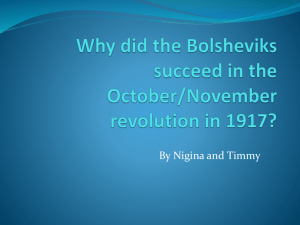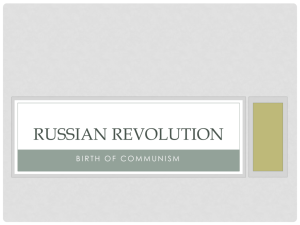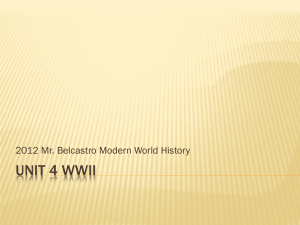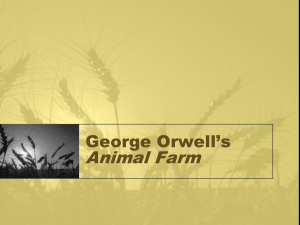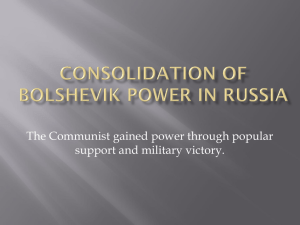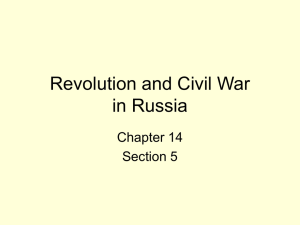The Soviet Experiment, 1917-1927
advertisement
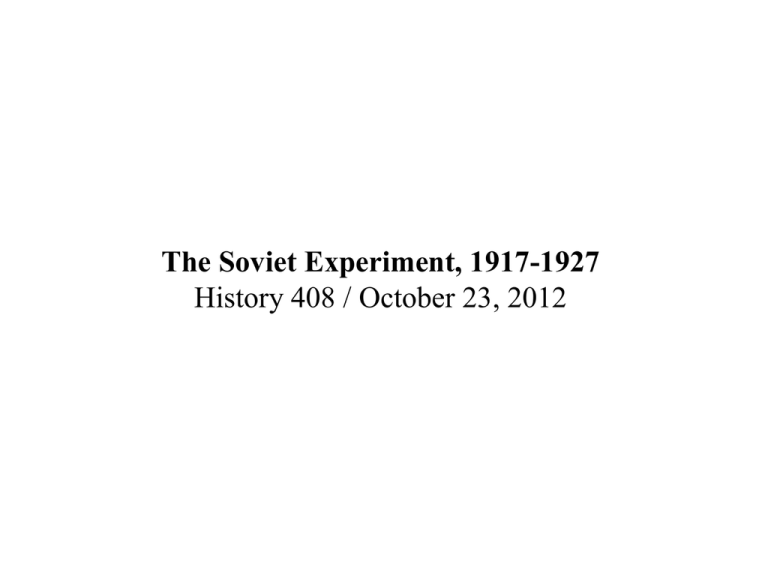
The Soviet Experiment, 1917-1927 History 408 / October 23, 2012 V. I. Lenin (1870-1924) Alexander Kerensky (1881-1970) “Dual Power” I: the Provisional Government Summer 1917: Kerensky rallies the army to a new offensive Demonstration in St. Petersburg against the war “Dual Power” II: Soviets (Councils) of workers, soldiers, and peasants Lenin after his return from Switzerland to St. Petersburg (1917) The Putilov Works: a stronghold of Bolshevik support The Winter Palace in St. Petersburg Bolsheviks storm the Winter Palace, October 24-25, 1917 (November 7 by Western calendars) Leon Trotsky (1879-1940) Civil War: “Red” soldiers strung up by “White” officers Civil War: recruiting Red Army volunteers (lower right – “are you with us or with them?”) Civil War: teaching economics to future party members Allied forces intervene in the Civil War (shown here in Vladivostok) A sarcastic Bolshevik view of the League of Nations “Capitalists of all countries, unite!” 1924 pamphlet outlining Lenin’s views on the “New Economic Policy” (introduced 1921) The harvest of NEP: Farmers’ collectives increase the urban food supply “NEPmen” profit from semi-capitalist markets The Comintern (founded 1919): Trotsky’s program for global revolution Cutting-edge artists support state goals: (a) education and (b) the “construction of socialism” Lenin: Communism = Soviet power + Electrification” “Are you helping to liquidate illiteracy?” (1925) “Radio: Out of a million wills, we will create one will” (1925) Social experimentation: Alexandra Kollontai and the “Zhenotdel” (Women’s Section of the Bolshevik Party, 1918-1930; Kollontai dismissed in 1922) “Every cook should learn to run the government. – Lenin” “Don’t sit at home in your kitchen, head to the elections for the Soviet! Once working women remained in the dark, but now in the Soviet they decide things” Constructivist architecture of the 1920s More constructivism (architecture & photography) Experimental film-making: Dziga Vertov, Man With a Movie Camera (1929) Joseph Stalin (1879-1953) Stalin claims to be Lenin’s chosen successor Mobilizing social envy in the countryside: poor and middling peasants aroused against the “kulaks”
